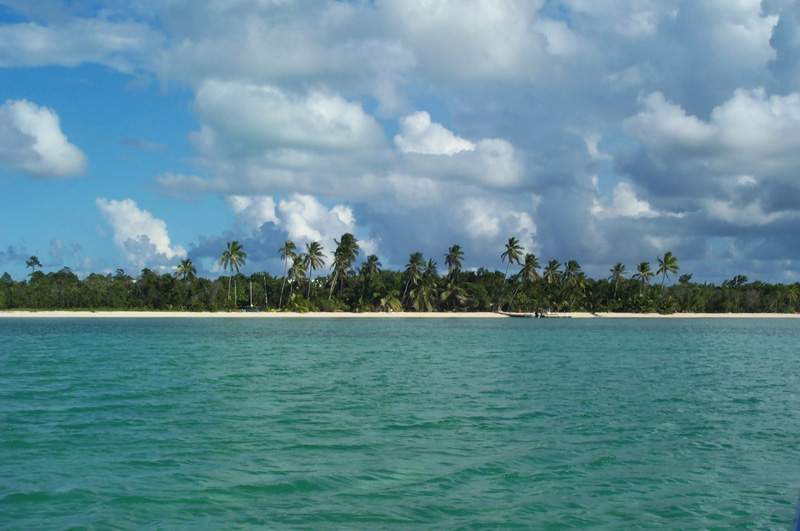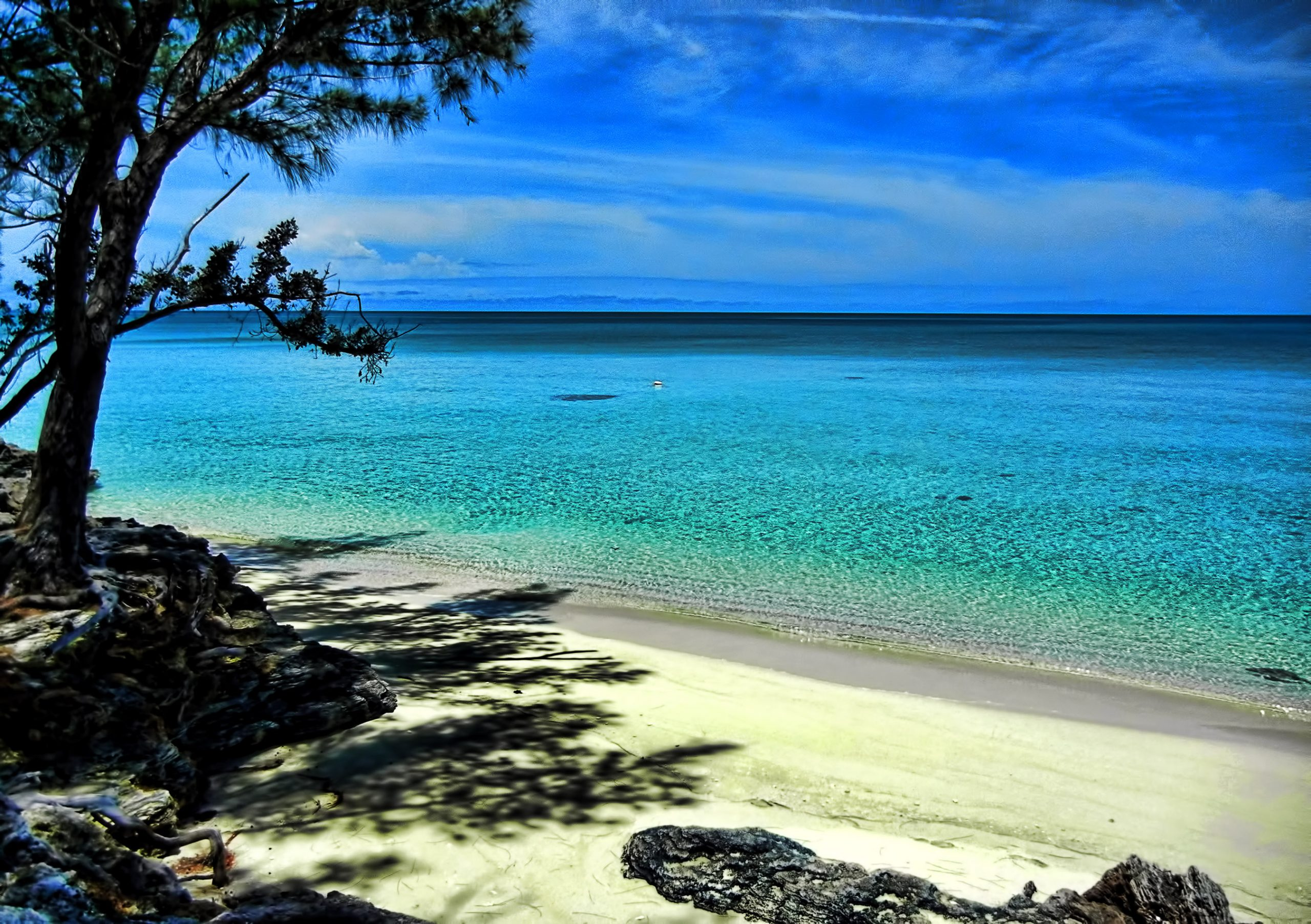Andros is the largest of the 26 inhabited islands that make up the Bahamas. Politically considered one island, it’s actually a sprawling collection of hundreds of islets and cays.
Originally inhabited by the Lucayans—indigenous people of the Bahamas—Andros saw dramatic change when the Spanish arrived in the 15th century. According to legend, Juan Ponce de León may have passed through Andros in his quest for the Fountain of Youth. The Lucayans, skilled in free diving, were enslaved by the Spanish and sent to places like Cubagua to harvest pearls. Tragically, European diseases decimated the population, leading to their near-extinction by 1520.
Andros in the Bahamas. Source: Wikipedia
In the 17th century, the British took control of the area, and Andros became a pirate haven during the 1600s and 1700s. To this day, two caves on the island’s north side bear the name of the infamous Captain Morgan.
Today, the most populous settlement is Andros Town, home to about 2,300 residents. As of the 2010 census, the island’s total population stood at 7,386. Locally, Andros is affectionately known as The Sleeping Giant and The Big Yard.
Andros also became a magnet for Greek sponge divers in the 19th century, when sponge harvesting was the backbone of the Bahamian economy.
Andros in the Bahamas from above. Source: Flickr
Although the island’s name may sound Greek, it likely stems from British colonial influence. Originally named Espiritu Santo by the Spanish, it later appeared in maps as San Andreas and eventually Andrews Island, possibly in reference to Sir Edmund Andros, a British colonial governor.
Eleuthera: A Name with Greek Roots and a Story of Freedom
Unlike Andros, the name Eleuthera has a direct Greek origin—meaning “freedom.” And fittingly, the story behind the name reflects that meaning.
Eleuthera Island in the Bahamas. Source: Wikipedia
The island’s first inhabitants were the Arawaks, who were enslaved by Spanish conquistadors and forcibly relocated to work in the mines of Hispaniola. By the mid-1500s, the Arawak population had been completely wiped out.
The first European settlers arrived in 1638. They were a group of English Puritans from Bermuda, known as the “Eleutherian Adventurers.” Fleeing religious persecution, they sought a place where they could freely practice their faith. They named the island Eleuthera, inspired by the Greek word for liberty—eleuthería.
From ancient free divers and pirate legends to Greek sponge divers and Puritan refugees, the islands of Andros and Eleuthera carry rich and unexpected histories. Though only one of them bears a name directly rooted in the Greek language, both are reminders of the diverse threads woven into the cultural fabric of the Bahamas.












